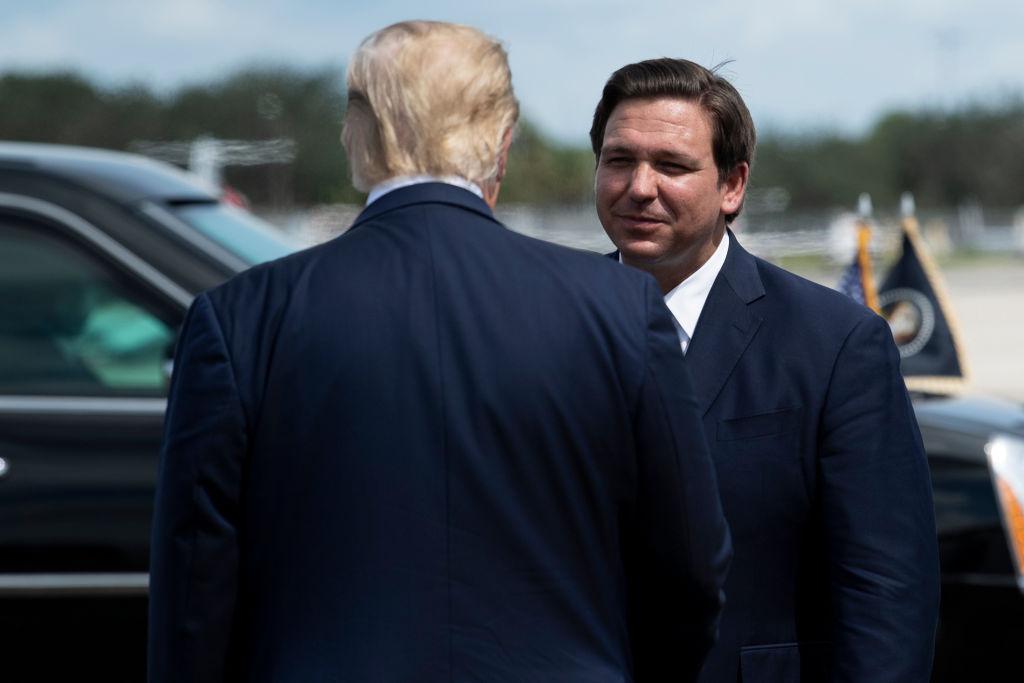Florida’s Republican Gov. Ron DeSantis and his 2024 presidential campaign have come under criticism for using fake images generated with artificial intelligence (AI) depicting former President Donald Trump with Dr. Anthony Fauci.
A Twitter account called DeSantis War Room shared a video showing several images of Trump and Fauci, three of which depicted Trump hugging and kissing Fauci on the face with the caption “REAL LIFE TRUMP,” suggesting a close relationship.





